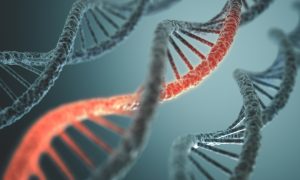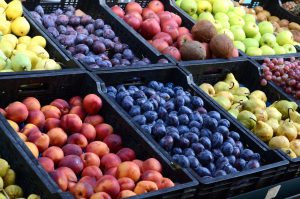Short and Sweet Headlines are Best!
People often avoid sugar, consume low sugar products or use alternative sweeteners and whilst too much sugar of any kind can cause health issues sugar has an important role to play in our cells particularity our DNA.
 Sugar in DNA
Sugar in DNA
DNA is one life's building blocks. It’s what makes you who you are at the most fundamental level. Strings of nucleotides form together in numerous different combinations, no two people being exactly the same even when they’re related by blood.
What DNA is used to make is part of the story - the other being what DNA itself is made out of. The genetic code itself and the various parts of DNA all have specific functions within its structure. And this relates to sugar.
The sugar found in DNA is called deoxyribose. This is the 'D=' in 'DNA' – DeoxyriboNucleic Acid.
Sugar therefore is one of the fundamental parts of DNA - and us. Deoxyribose is one of the two parts making up the sugar-phosphate backbone of all DNA strands - it links with a nitrogenous base in order to form what are called nucleotides. These link in pairs in great numbers forming the double helix shape of DNA.
RNA also has a sugar known simply as ribose which serves the same function as deoxyribose; differing only in a single elemental molecule. This difference changes the way these two compounds behave, causing them to function as they do within the body’s cells.
 Natural, added and artificial sugars differ in how they affect your health.
Natural, added and artificial sugars differ in how they affect your health.
There is a body of evidence that a high-sugar diet can cause damage to health. Too much added sugar has been linked to increased risk of high blood pressure, inflammation, insulin resistance, obesity, type 2 diabetes, nonalcoholic fatty liver disease, and heart disease.
All sugar is not bad however the sugars found in a can of cola are not the same as those in a cup of fresh berries or other fruit.
Natural vs. Added Sugar:
Natural sugars are the ones found in whole, unprocessed foods — such as the fructose in bananas or berries.
Foods with natural sugars tend to be low in calories and sodium, and high in water content and many important vitamins and minerals. The fiber in fruits slows down how quickly your body digests it, so you don’t get the same sugar spike you get after eating a sweet pastry.
Added sugars such as those in doughnuts and soft drinks, are the ones to be concerned about. 'Added sugar' is any sugar that gets added to a food — either by you, a chef, or a food manufacturer before it goes into your mouth.
 Natural Sugars
Natural Sugars
Most of us will eat fruit during the day however we often overindulge and eat more than we need for natural sugar. Two pieces fruit is normally sufficient for our daily sugar needs - more than this will give us an excess that may then be added to when we eat snacks and then our evening meal - especially dessert! On top of that a glass of wine with the meal will increase to the sugar load. Then we go to bed and let the excess sugar